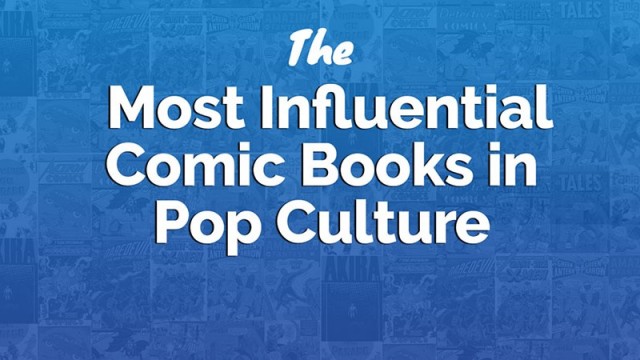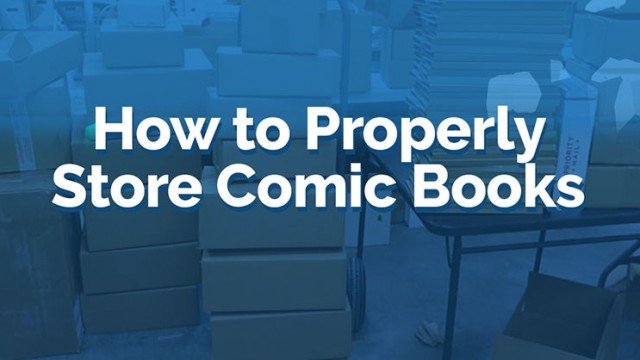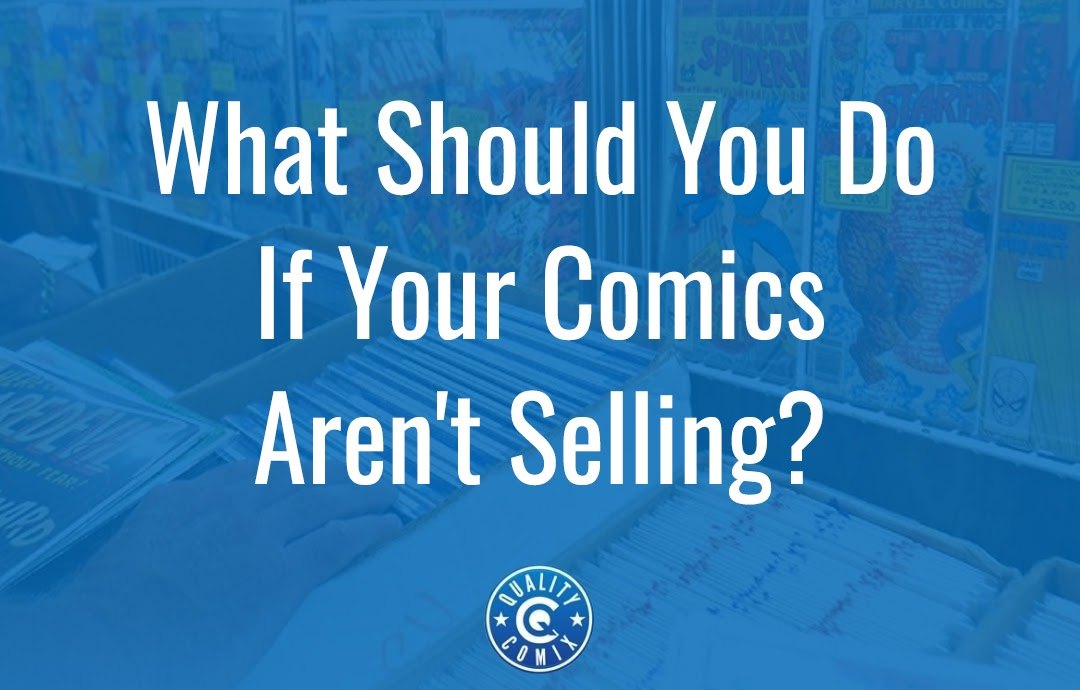
Whether you inherited a comic collection and need to liquidate it, or you're a comic reseller and flip comics for a profit, sometimes you're going to encounter times when comics just won't sell. On the surface, they're desirable; they may be in great condition or high grade, they're popular characters, they're key issues, but for whatever reason, no one is biting. Your eBay listings sit unsold.
What can you do?
Table of Contents
Check the Trends
One of the biggest reasons why comics you've listed for sale aren't selling – at least, when you've done everything else correctly, which I'll dig into later – is that you just missed the wave.
Comics have trends. Critically, though, those trends are often divorced from the actual events in the comics themselves. As much as DC might hype up the next major Death of Superman-level event, the truth is, so many major events like that happen every year now that it's hard to do anything truly hype-worthy.
No, trends in comic sales, especially in the sales of older comics and keys, have to do a lot more with other media properties. It's not about the Next Big Thing in the comics themselves; it's about a new movie, TV show, or video game adapting a popular older story.
The Avengers movies were phenomenally popular, and when they were announced, and later when they were released, the comics that covered the same storylines ended up spiking in price and interest. People want to buy them to read them, or to own them, or to flip them if they think the price will keep going up.
So, check the trends. If your comics aren't selling, it's possible that you just missed a relevant trend. You priced the comic to sell as if the trend was still ongoing, but as interest fades, so too do both sales volume and sales price. Unfortunately, depending on when you bought in, that might mean you'll either need to keep holding or sell at a loss.
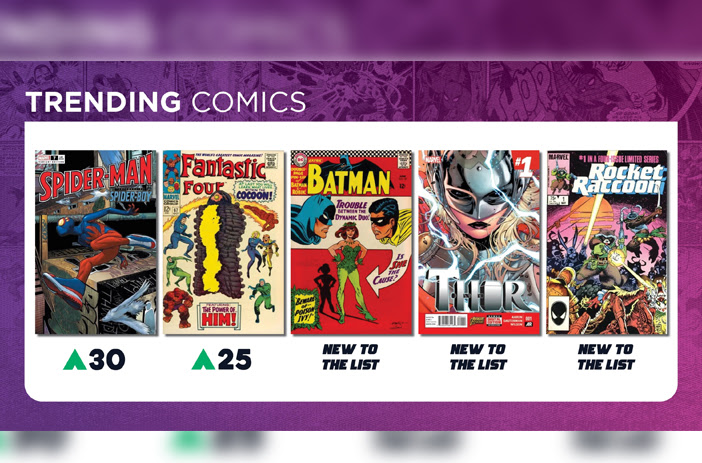
These things also tend to come and go in waves. Marvel, for instance, often teases large swaths of movies all at once by releasing their upcoming year or two of plans, with little or no information beyond a title. That can boost interest based on speculation. Then, later, when more details emerge, and it becomes clear which storylines are going to be covered, those keys end up even more sought-after.
But, too, you often have a resurgence of interest in previous tie-in books. When the next big Avengers movie comes out, whatever storyline it adapts will spike, but so too will interest in the original Avengers storylines, as people remember, think about, and go back to re-watch those older movies and read the comics they're based on.
Remember, though, many people aren't buying these old, high-value keys just to read. After all, it's trivially easy to buy digital copies (or even pirate them) if all you want to do is read a storyline. People buy them as items to have, not to consume.
Check the Pricing
If trends aren't the answer, check your pricing.
Pricing comics can be very tricky. More importantly, what you see isn't always what the truth actually is for the price of a comic. There are three common mistakes I see people make all the time when they're pricing comics.
Mistake number one is using listing prices rather than sold prices to set your own pricing. You see this a lot in various markets; people will list items for sale on eBay at a stunningly high price, and that price will get circulated or promoted as "this thing is a goldmine!" and the hopes that someone uninformed will pull the trigger. Lots of collectibles have people who manipulate the market in this way, though it doesn't actually work very often.
What you should do instead is look through eBay's recent sales for the item in question and base your price on what people are actually paying. And, well, if there are no recent sales, that could tell you something both about the current pricing of the items available and about the interest in the comic itself. Lots of people just list items for hail mary prices because they don't care whether or not they sell, but if they do, it's a huge payday.
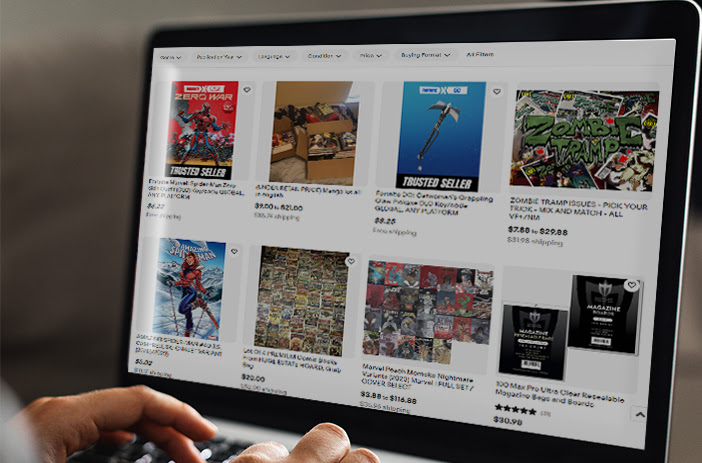
Mistake number two is setting a price and not adapting that price to the market. You can do your research, check the recent sales, and set a good price for your books. But, over the course of a couple of weeks or months, you keep re-listing the book as the listing expires with no bids, and you keep it exactly the same. Meanwhile, other people have been listing and selling the same book for cheaper and cheaper prices. Maybe more supply hit the market, maybe interest is decreasing, who knows. The point is that the price has been dropping, but you haven't paid attention.
If a listing isn't selling and you've tried a few times, a good thing to do is more research. Look into new recent sales and see if the price has been dropping and if you're now a high-priced outlier.
Note: with new platforms like Temu and Whatnot available to sell comics in more viral ways, there may be an entire market for comics you aren't seeing. Try to check prices for comics on platforms other than just eBay and your local comic store for a better picture.
Mistake number three is using record highs or outliers to set your price. For example, a lot of people use pricing information for items in general rather than the specific example of the item. There's a world of difference in price between a graded 8.5 and a graded 9.5, after all. Similarly, reprints, different variations, reissues, and other variants can be pretty meaningful, and if you pick the wrong one to price match, your price will be inaccurate.
Of course, the simplest way to adjust the price for a comic that's not selling is to just incrementally lower it until it does sell. It's tedious and time-consuming, and if the trend and interest are dropping faster than your price, you might be stuck doing this for a long time until you reach a breakpoint, but it's still the simplest way to handle it.
Check the Listing
Your product listing contains all of the information necessary for people to find the item to buy and everything you need to convince them to buy your copy. So, review your listing to make sure it has everything relevant and portrays your item in the best possible light.
One of the biggest faults I see in eBay listings is poor photos. Photos with glare, photos that hide or obscure damage to a comic, photos that are blurry and look amateur; all of these are a huge turn-off for potential buyers. They want to know what they're getting, especially if you have mid-grade or low-grade comics with significant faults. The more it looks like you're hiding – whether or not you're actually hiding anything – the less people are going to trust the listing.
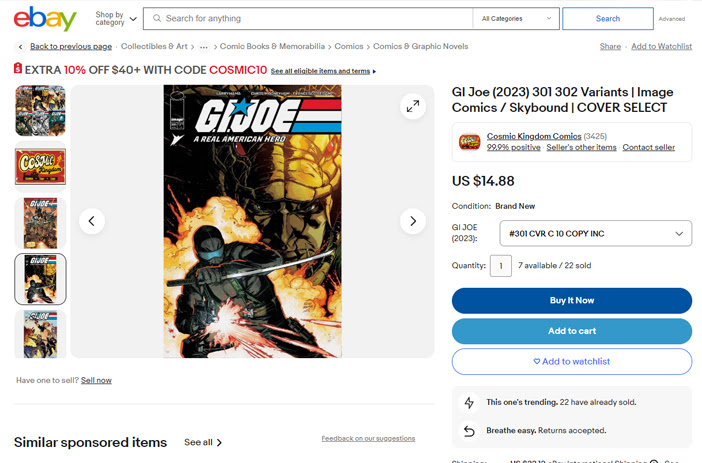
The description, as well, needs to include all of the relevant information about the book you're trying to sell. Remember, search engine optimization comes into play here because people are just typing things like comic names and issue numbers into the eBay search; if your listing doesn't include that information, eBay's algorithm isn't smart enough to match up your listing with the relevant query. You might even want to include details like the writer and illustrator for the comic in case collectors and fans of those individuals are seeking out show pieces as well.
Honestly, the number one tip I always give is to take better photos. If you can, even a scan might be better, though that's understandably difficult if you don't have the right machinery, especially if you're handling graded comics in slabs. I have a whole post about comic photos, with what to do and what not to do, which you can read here.
Improve the Condition
Sometimes, the comic you have for sale is in relatively poor condition. That's fine if it's still a relatively rare comic and there aren't many available for sale. Other times, though, there are enough higher-grade copies of the same comic available that yours just isn't worth buying.
Obviously, if we're talking about keys where a 9.0 grade goes for six figures, a 5.0 grade is going to be an affordable alternative for collectors. For comics where there are plenty of 9s and 8s available, trying to sell a 6, even for a discount, probably isn't going to work. You might get a buyer eventually, but they have to be really budget-conscious and care much more for their pocketbook than their collection's quality.
Fortunately, sometimes, you might be able to improve the condition of the book. At the very least, boosting a 6 to a 7 can make it more desirable, and if the difference is even greater, who knows how much additional value you add.
The key is cleaning and pressing. Cleaning is the careful act of removing things like dirt, surface grime, pencil marks, and other blemishes from comics and helping to polish up the overall condition of the comic. Pressing uses carefully controlled humidity to soften the pages and flat surfaces to press them flat and remove divots and minor creases.
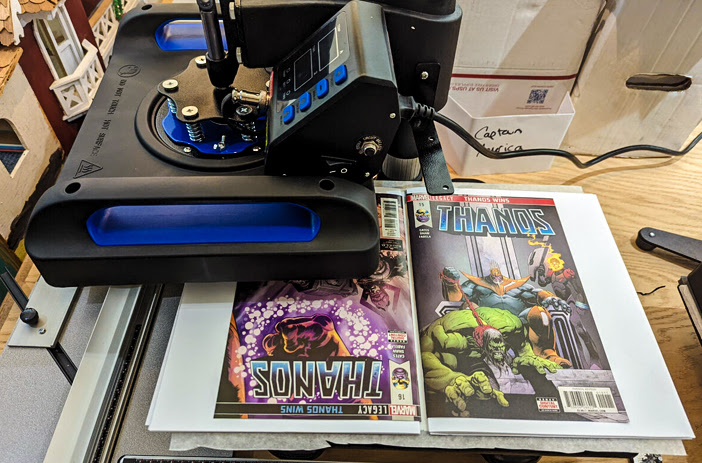
Unless you're very detail-oriented, very careful, have a steady hand, and don't mind ruining a few practice comics, I wouldn't recommend cleaning and pressing yourself. Mistakes can lead to even more damage to a comic, and it's not something you want to do to a valuable key you're trying to sell. If you're willing to try, though, there are resources available.
Instead, you can send your comics to CGC to be cleaned and pressed. They can even be graded (or re-graded) at the same time and can potentially improve the overall condition, grade, and value of the book.
There are a few important notes here.
First, I would only recommend doing this on books with moderate value or above. If you're spending $50 on fees and shipping to improve the condition of a $100 book so it can sell for $120, you're not getting a good deal. On the other hand, if you're spending $50 on fees and shipping to improve the condition of a $1,000 book so it can sell for $1,500, it's worthwhile.
Second, there have recently been a bunch of reports of CGC claiming that basic cleaning is restoration and giving the dreaded purple label, which hugely hurts the value of a book. Here's a discussion about it. If you're going to have the book cleaned and pressed, I'd say have CGC do it; they won't judge their own cleaning as restoration, but they might if someone else does the cleaning and they think it was done inappropriately. Play it safe, is all I'm saying.
Improve the Offer
If all else fails, you can always try to sweeten the deal. Comics that don't sell on their own might sell if you pair them up with other dollar-bin books from the same storyline as a complete set, or they might sell better if you offer free shipping, and so on. It's hard to say what specific kind of offer or value add would work, but you can try different things and see.
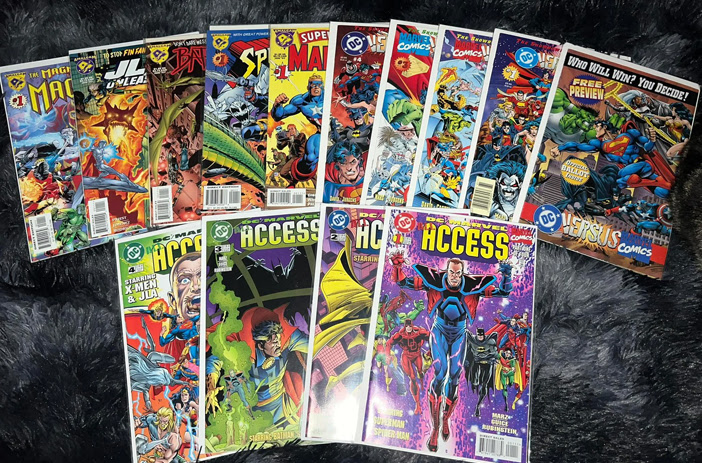
At the end of the day, though, sometimes it's just the wrong time to try to sell a book. Comics have ups and downs, both individually and across the entire industry. Sometimes, it's seasonal; people have more disposable cash to spend on comics around tax return season and more interest in buying comics for the holidays, but other things to spend money on in mid-summer. Economic factors also apply; a recession is going to suppress available cash and even increase supply as more people are forced to part with their comics to make ends meet. Societal factors sometimes just mean that you either sell now for a loss, fail to sell at all, or keep holding.
And, of course, you can always sell to a store. I'll admit, no store (ourselves included) is going to give you full 100% retail pricing for your comics. We need room for our own profits, after all. That said, if you have comics you can't sell otherwise, why not drop us a line? We'll help you appraise your comics as accurately as possible and make an offer you're free to judge for yourself.

